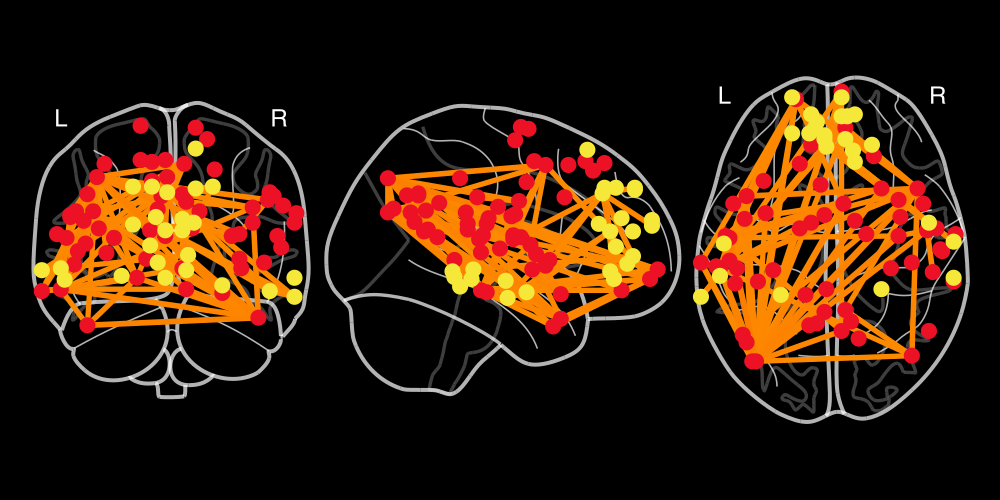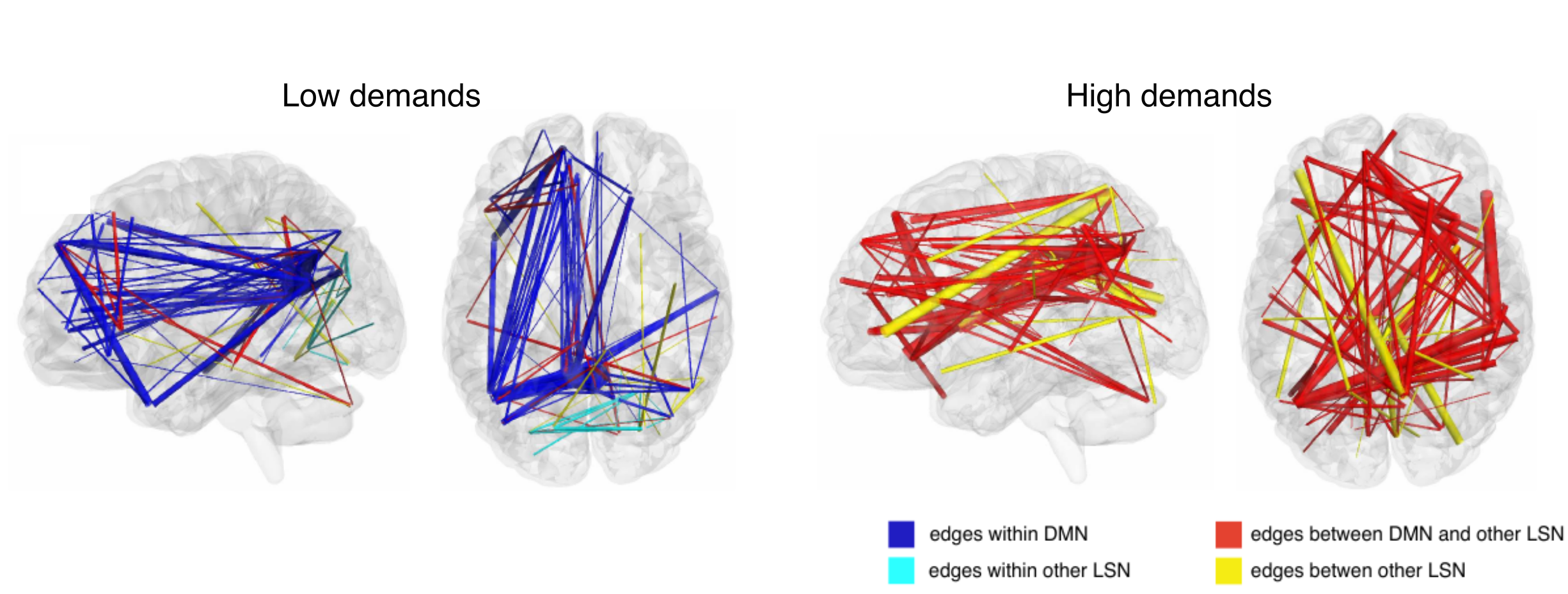
Reorganization of brain networks
The network of the human brain constantly adapts to meet the demands of changing environment. Such reconfiguration spans multiple time scales: from seconds to minutes during task performance, days or weeks during learning, and years -- over our entire lifespan. We seek to understand how the brain network changes during cognition, learning, or early-sensory deprivation. With neuroimaging techniques, such as functional magnetic resonance imaging (fMRI), we can obtain snapshots of brain activity during task performance and resting-state. We apply advanced tools from network science and machine learning to describe how large-scale networks of the human brain interact through time and adapts to changing demands of cognitive tasks. In particular, we are interested in the questions:
- How the balance between segregated to integrated network organization changes during cognitive processing?
- What neuronal mechanisms underlie the cognitive adaptation during learning and cognitive training?
- What network organization is the most efficient for effective learning?
- How does the brain network develop in the absence of sensory stimuli (i.e., after deafness)?

Funding:
- The National Science Centre, PRELUDIUM grant,Temporal dynamics of functional connectivity changes induced by cognitive training. The role of individual differences (2015/17/N/HS6/03549),
- The National Science Centre, ETIUDA grant, project: Dynamics and plasticity of human brain functional network during cognition (2017/24/T/HS6/00105),
- The Foundation for Polish Science, START & prof. Barbara Skarga fellowship,
- Ministry of Science and Higher Education, project: Excellence Initiative - Research University, awarded to Nicolaus Copernicus University in Toruń. Priority research area: Neuroinformatics.
Collaborators:
- Dani Bassett (University of Pennsylvania, USA)
- Xiaosong He (University of Pennsylvania, USA)
- David Lydon-Staley (University of Pennsylvania, USA)
- Simone Kühn (Max Planck Institute for Human Development, Germany)
- Marcin Szwed (Jagiellonian University, Poland)